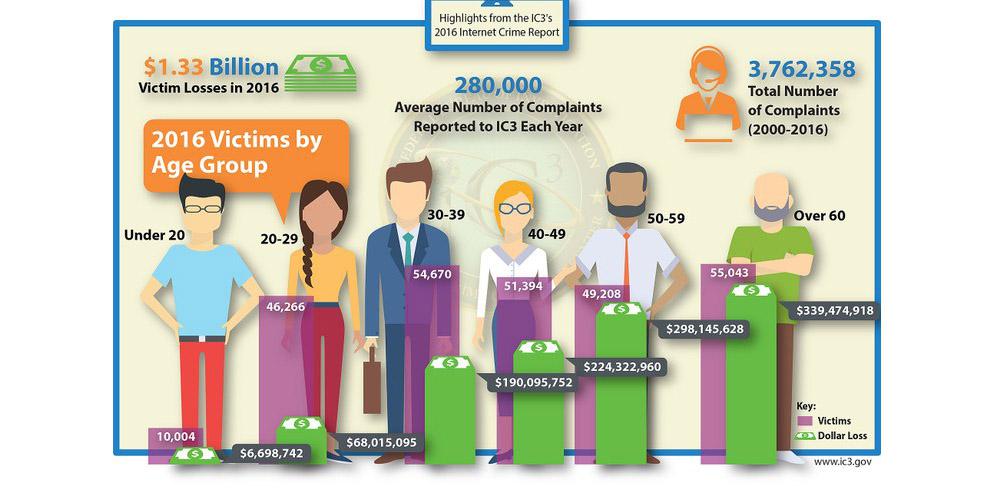Tech Support Scams on the Rise
You’ve probably received a phone call that goes something like this: “Mr. Smith? I’m calling from ABC company, and there appears to be a security problem with XYZ operating systems. Are you at your computer right now? We can fix the problem for you. All you have to do open your computer, and I’ll take care of it.”
If you have, you’re not alone. In fact, according to the FBI Internet Crime Complaint Center (IC3) 2016 Internet Crime Report, tech support fraud has become a significant trend in online crime. The scenario plays out in at least one of two ways. Either the impostor asks for credit card information to pay for a fake antivirus solution, or convinces the user to allow access to the computer and then steals personal information or installs malware.
It’s a lucrative, low-overhead business. In 2016 alone, victims were scammed out of nearly $8 million as the result of more than 10,000 such tech support incidents reported to the IC3. Anyone can fall prey to swindles, but according to the report, computer owners over age 60 are prime targets—and victims.
“They’ll trick you into letting them into your computer,” says IC3 Unit Chief Donna Gregory. “You open the door and allow them in. You may think you’re just watching them install a program to get rid of a virus, but they are really doing a lot of damage behind the scenes.”
According to the IC3 report, other major fraud categories last year included business email compromise, ransomware and extortion. In 2016, the center received nearly 300,000 complaints; reported losses exceeded $1.3 billion.
Since its inception in 2000, the IC3 has received more than 3.7 million complaints. It refers cases to the appropriate law enforcement agencies and uses the information to identify trends. Its database also is available to local law enforcement, including a separate state-by-state breakdown that allows officers to review local trends in Internet crime.
Internet users should report Internet fraud to IC3, no matter the dollar amount. Additional data helps the FBI and law enforcement see a clearer picture of Internet crime, center officials say.
Though Internet crime is a serious threat, it’s not unstoppable. The IC3 recommends:
- Update antivirus software and the operating system.
- Remember the old adage: If it sounds too good to be true, it probably is.
- Be a careful link clicker.
- Think twice before posting information on social media.
- Lock down social media accounts as much as possible.
- Use two-factor authentication if available.
- Obvious but still important: Use complex passwords.
For more information or to submit a complaint, visit www.ic3.gov.






Comments